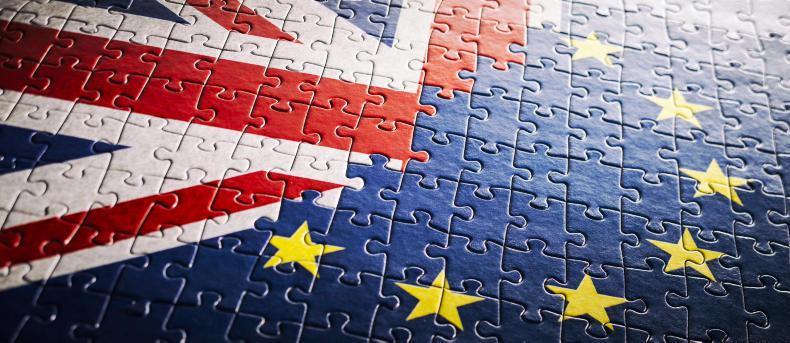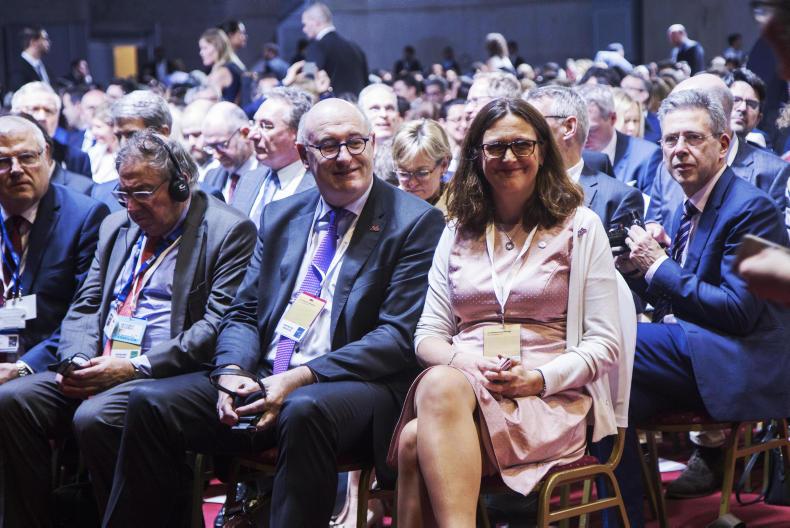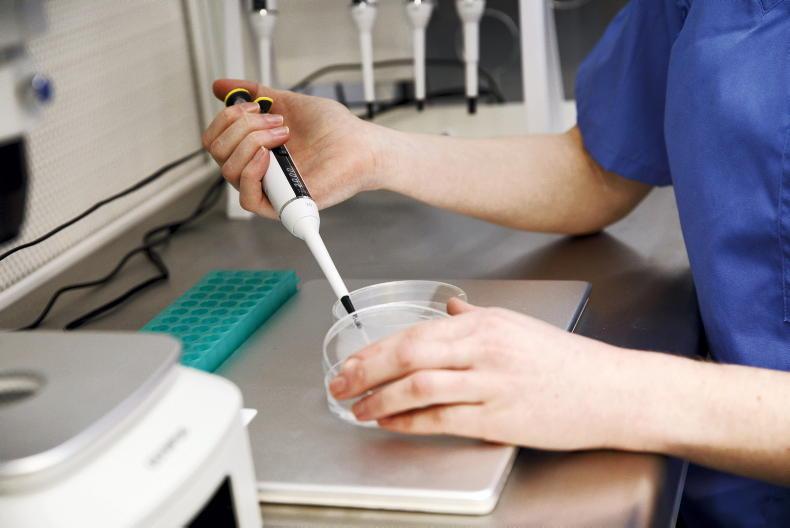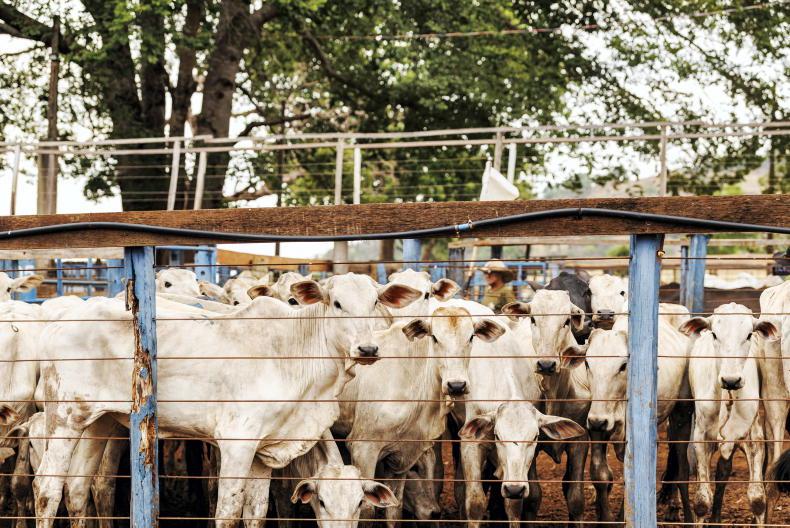As 2018 begins, Irish farmers will have been relieved that the target of a trade deal with Mercosur wasn’t achieved before the end of 2017.
That doesn’t mean the risk has passed, however, as a further effort is to be made in Brussels over coming weeks to bring the discussions to a close.
At the Mercosur end, there is a huge disquiet at no increase being made on a 70,000t beef quota offer, while the EU has several issues of its own around access for wine to South America.
The EU farm organisations had organised a huge lobby around the WTO conference in Buenos Aires in the middle of December that meant no further ground was given on beef or sugar access.
However, the feeling remains as business resumes this week in Brussels that the pressure will return for a further offer and farm organisations need to to remain on guard.
Brexit
The likely shape of Brexit will emerge as this year progresses.
While the broad outline was agreed in Brussels on 8 December that if nothing else was agreed the fallback position for Ireland would be continued UK alignment, much remains to be sorted.
The biggest problem is the division of opinion within the UK government and parliament about what Brexit should look like.
This year that decision will have to be made and the UK prime minister has quite a challenge to build a consensus, which many believe to be impossible.
The big problems are in agriculture, beef and dairy (cheese) in particular
With the UK being the sixth largest economy in the world, it is sufficiently strong to operate independently of the EU.
For Ireland, as part of the EU 27, many sectors will continue with limited damage from a UK departure.
However, the big problems are in agriculture, beef and dairy (cheese) in particular.
With the UK representing over half the market for these products, an alternative simply cannot be found if the punitive WTO tariff rates are applied, as would be the case if there is no Brexit deal.
Similarly, if the UK were to decide, as it would have the right to do, to throw its market open to all comers at a minimal or nil tariff rate, Irish produce would also be displaced.
Tough negotiations
The real tough negotiations are about to begin on Brexit, with it looking impossible to reconcile the ambitions of those in the UK who want maximum freedom, while retaining what they like from EU membership and the tough stance taken by the EU led by Michel Barnier.
A further issue arises in that current trade deals secured by other third countries have provisions that prevent other deals being negotiated on more favourable terms, thereby opening another front.
Ideal outcome
For Irish farmers, the ideal outcome for both these discussions would be continuation of the status quo.
There is no such thing as a good Mercosur deal for Irish beef producers and EU sugar growers.
Similarly, it would be best if the UK decided it wouldn’t go ahead with leaving the EU or failing that to remain in the single market and customs union.
Read more
Post-Brexit agri plans for Northern Ireland revealed
Mercosur threat - keeping the pressure on
As 2018 begins, Irish farmers will have been relieved that the target of a trade deal with Mercosur wasn’t achieved before the end of 2017.
That doesn’t mean the risk has passed, however, as a further effort is to be made in Brussels over coming weeks to bring the discussions to a close.
At the Mercosur end, there is a huge disquiet at no increase being made on a 70,000t beef quota offer, while the EU has several issues of its own around access for wine to South America.
The EU farm organisations had organised a huge lobby around the WTO conference in Buenos Aires in the middle of December that meant no further ground was given on beef or sugar access.
However, the feeling remains as business resumes this week in Brussels that the pressure will return for a further offer and farm organisations need to to remain on guard.
Brexit
The likely shape of Brexit will emerge as this year progresses.
While the broad outline was agreed in Brussels on 8 December that if nothing else was agreed the fallback position for Ireland would be continued UK alignment, much remains to be sorted.
The biggest problem is the division of opinion within the UK government and parliament about what Brexit should look like.
This year that decision will have to be made and the UK prime minister has quite a challenge to build a consensus, which many believe to be impossible.
The big problems are in agriculture, beef and dairy (cheese) in particular
With the UK being the sixth largest economy in the world, it is sufficiently strong to operate independently of the EU.
For Ireland, as part of the EU 27, many sectors will continue with limited damage from a UK departure.
However, the big problems are in agriculture, beef and dairy (cheese) in particular.
With the UK representing over half the market for these products, an alternative simply cannot be found if the punitive WTO tariff rates are applied, as would be the case if there is no Brexit deal.
Similarly, if the UK were to decide, as it would have the right to do, to throw its market open to all comers at a minimal or nil tariff rate, Irish produce would also be displaced.
Tough negotiations
The real tough negotiations are about to begin on Brexit, with it looking impossible to reconcile the ambitions of those in the UK who want maximum freedom, while retaining what they like from EU membership and the tough stance taken by the EU led by Michel Barnier.
A further issue arises in that current trade deals secured by other third countries have provisions that prevent other deals being negotiated on more favourable terms, thereby opening another front.
Ideal outcome
For Irish farmers, the ideal outcome for both these discussions would be continuation of the status quo.
There is no such thing as a good Mercosur deal for Irish beef producers and EU sugar growers.
Similarly, it would be best if the UK decided it wouldn’t go ahead with leaving the EU or failing that to remain in the single market and customs union.
Read more
Post-Brexit agri plans for Northern Ireland revealed
Mercosur threat - keeping the pressure on











SHARING OPTIONS